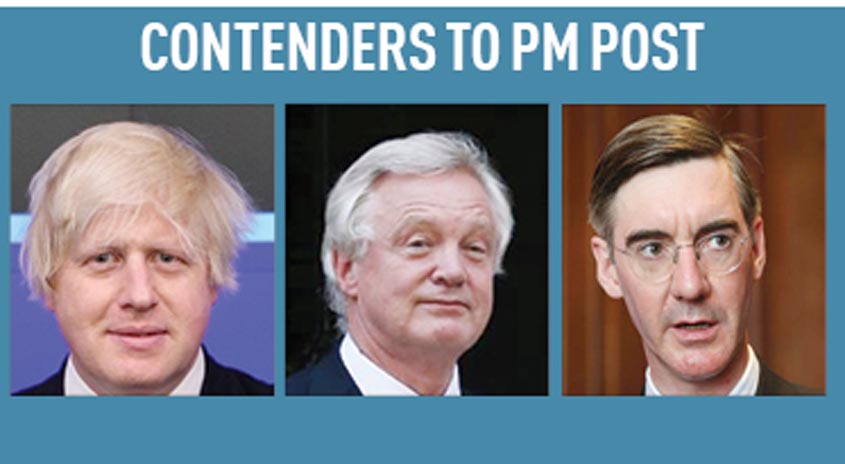British Prime Minister Theresa May’s speech to launch the Taylor Review into “Employment Practices in the Modern Economy” was much anticipated, but it turned out to be a dreary squib. It was essentially a more detailed re-run of her Manchester speech in 2016, but delivered with less charisma and less confidence. Matthew Taylor (chief executive of the Royal Society of the Arts), who directed the panel, has a goal for UK to provide “good work for all”. He recommends this is achieved through responsible corporate governance. May outlined corrective measures for the “burning injustices” so inherent in Mayism, new principles for those in unfair employment (Britain’s thriving gig-economy), clearer rights and protections for unconventional workers (the self-employed), better taxation revenue for the Treasury and a lecture about how technological change will require employees and employers to adapt. May wrapped up by inviting “the other parties in the House of Commons” to engage with the report, May hoped for positive contributions, not criticisms. This has been interpreted as May appealing to the Labour and Jeremy Corbyn on behalf of the people they care about and as an insurance that Labour will not try and destroy her forthcoming Brexit Bills.
The Conservatives held their “Summer Drinks Party” at the Queen’s Tennis Club; 350 prospective candidates were hopeful to find out if they were back on the list. Traditionally, the PM would be there, but not this year. Party chairman, Sir Patrick McLoughlin was not present, preferring to spend an evening of music, “ciccetti” food and excellent Italian wine with Westminster’s Italian Conservatives and former Member of Italian Parliament, Gabriella Carlucci, at an exclusive Italian-themed venue. It was fortunate for them that they stayed away, as a hostile atmosphere greeted Candidate Committee chairman, Amanda Sater, who was heckled and booed during her speech on “thanks for your campaign efforts”. May’s alter ego, Amber Rudd gave a talk, acknowledging campaign mistakes, but in reality she was pitching herself as May’s successor. However, this is unlikely as she is now seen as a May derivative, and since May has played the female PM card, badly, the next PM probably will be male. Rudd took questions on electoral fraud. One candidate referred to thousands of postal votes being registered in the two weeks before the general election. Another queried why the election was during the university term time, enabling all the students to be present to vote (for Labour). Another candidate queried if further action was going to be taken against Anne Marie Morris, MP, who was suspended after using a disgraced colonial racist expression (N****r in a woodpile) during a Brexit debate. Rudd was tested about immigration figures, but did not give any conclusive answers. According to the Office of National Statistics, immigration in 2016 was estimated at 588,000, with an increase in emigration, mainly of EU citizens, of 339,000. In conversations, it is usually only the estimated net figure of 248,000 that is quoted, but the potential impact on UK’s social culture is more dramatic, when considered in real terms. It also questions Rudd’s new policy of making refugees of all nationalities, not just Syrians fleeing Syria eligible for resettlement in UK. As always, taking student numbers out of immigration figures was brought up.
For most candidates, the evening was unsatisfactory; only a handful got a furtive indication of approval. Many will have to re-sit their Parliament Assessment, even those who were accepted by “emergency” assessments two months ago and those who passed full assessments in 2015.
The Labour is divided over Corbyn’s socialist agenda and the Tories are divided over degrees of Brexit. In this climate, Theresa May is no longer strong and stable, it only requires 3 MPs to lose a byelection or the whip and the PM no longer has a majority. A storm is brewing. All the contenders are parading their virtues. The old-school Tory, Jacob Rees-Mogg is attracting a lot of media coverage; David Davis, Secretary of State for Brexit, fancies his chances; and Boris Johnson may turn out to be the stealth bomber. Johnson is thought to be deliberately keeping a low profile so he can fledge his nest in discreet locations over the summer recess. Johnson is likely to have the support of many from the 2010 and 2015 intake of MPs, despite defaulting on the leadership bid following the EU Referendum. It has been mentioned in Westminster that Johnson is the candidate who resonates most with David Cameron’s liberal Conservatism, missed by many since May-ism flopped. Theresa May might find she only has the backing of those she promoted in last month’s election (Gavin Barwell, et al). It is notable that Damien Green, Minister for the Cabinet Office and May’s friend since Oxford, not Michael Fallon, is May’s chosen spokesman. The Great Repeal Bill was launched on Thursday, originally the concept of MP Douglas Carswell and MEP Dan Hannan, the Bill is designed to explain how the government plans to Brexit, how EU laws will transform into British statutes. Already the Bill is threatened with obstruction from the unions, the Labour, the Liberal Democrats, the Scottish and Welsh governments and it might be another catalyst for disunity in the Tory Party. MPs and Peers will scrutinise, criticise and debate it in autumn.

